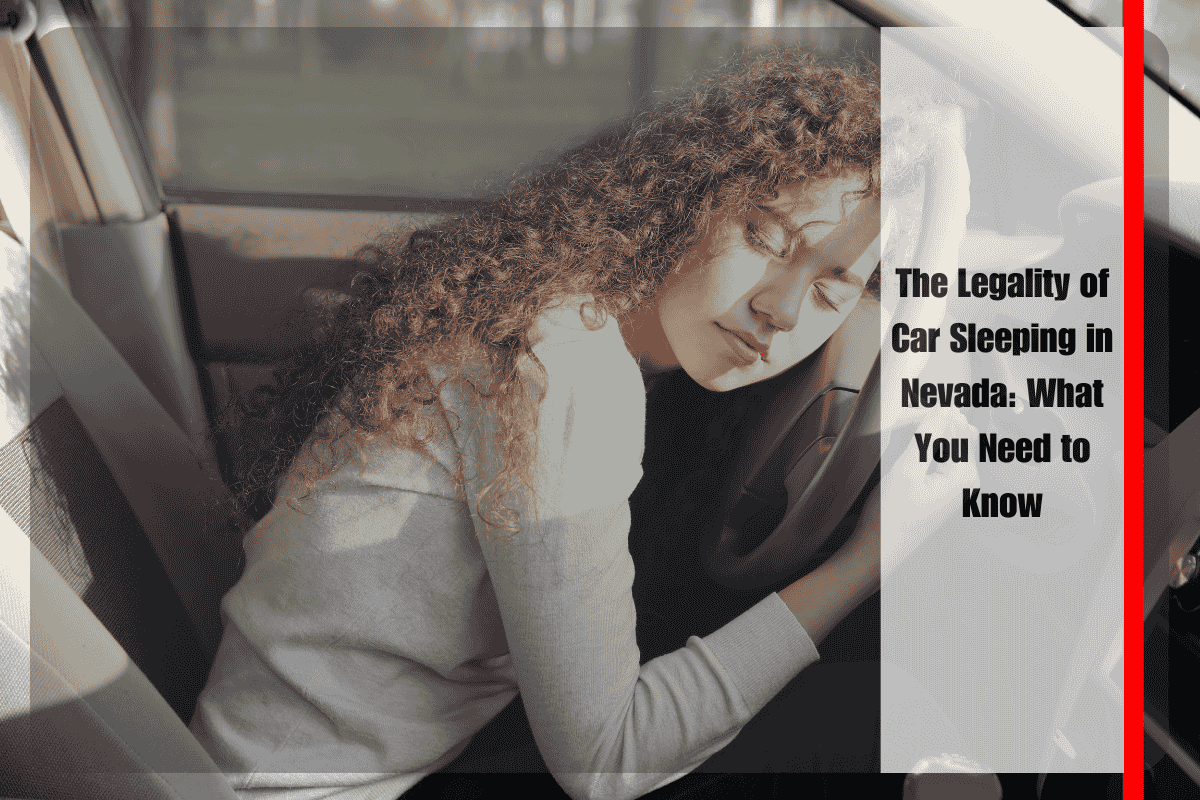Sleeping in your car in Nevada is generally legal, but there are important nuances and limitations that anyone considering it should know. Nevada does not have a statewide law that completely prohibits sleeping in your vehicle, and you are allowed to take a nap or rest in your car. However, the issue becomes more complicated depending on where your car is parked and the circumstances surrounding your stop.
No explicit state statute makes sleeping in your car illegal, but local ordinances and specific parking regulations in cities or counties can come into play. For instance, it is mostly permissible to sleep in your car for up to 24 hours in Nevada, as long as you do not violate local rules or property owner restrictions. If you wish to stay longer, or if you are in a particular town, always check for posted signs and confirm local regulations, as some municipalities might have their own additional restrictions.
A critical aspect to consider is your parking situation. Parking for extended periods, especially overnight, is only legal if you are not violating posted parking restrictions or trespassing on private property. The 2024 Nevada Revised Statutes indicate that unless otherwise provided by local ordinance, a person may not park a vehicle for longer than 30 minutes between 2 a.m. and 5 a.m. on a highway where a traffic control device explicitly prohibits all-night parking. This means that highways and certain public roads with signage could legally bar you from sleeping in your car there overnight.
Private property presents another consideration. Sleeping in your car on private property, such as retail parking lots, apartment complexes, or casinos, typically requires the permission of the property owner. Without consent, you may be at risk for trespassing charges, ticketing, or even having your vehicle towed.
One of the most significant legal risks for people sleeping in their cars is the possibility of being charged with driving under the influence (DUI). If law enforcement discovers you sleeping in your car and suspects you are under the influence of alcohol or drugs, you could face a DUI charge, especially if you are found in the driver’s seat with the key in the ignition, or if it appears that you recently drove or intend to drive while impaired. Police officers have broad discretion to initiate encounters with those asleep in vehicles, and outcomes can depend on the circumstances, including your location and condition.
It is also important to note the difference between napping to avoid drowsy driving—generally supported from a public safety perspective—and setting up your car as an extended living arrangement, which can draw more scrutiny from authorities, especially in urban areas or where homelessness is a concern.
To legally sleep in your car in Nevada, always ensure the following: you are not intoxicated or impaired, you are parked legally without violating signs or overnight parking bans, you have obtained necessary permissions on private property, and you are not creating a safety hazard by your location or manner of parking. By observing these rules, most issues with the law can be avoided. However, because local ordinances may change, it is wise to check with local authorities or read posted signs before resting in your vehicle overnight.
Sources
(https://courtroomproven.com/blog/is-it-legal-to-sleep-in-your-car-in-nevada/)
(https://teamjustice.com/is-it-illegal-to-sleep-in-your-car/)
(https://www.jackery.com/blogs/knowledge/is-it-illegal-to-sleep-in-your-car-what-states)
(https://www.jalopnik.com/1922039/us-states-that-making-sleeping-in-car-impossible/)
(https://law.justia.com/codes/nevada/chapter-484b/statute-484b-480/)












